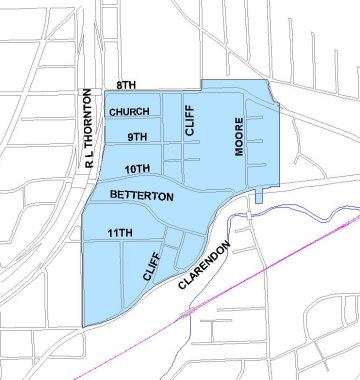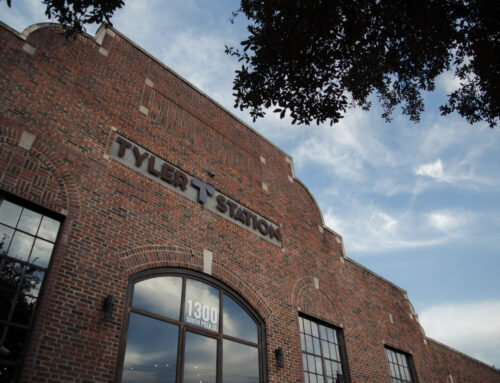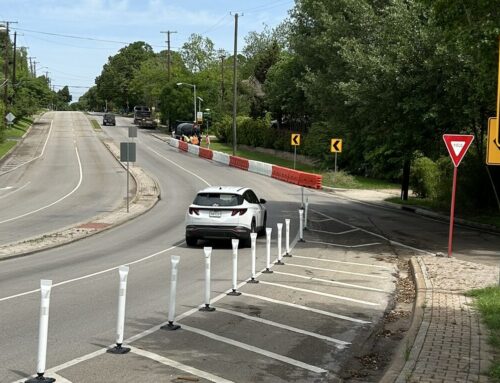Why does the City of Dallas regularly demolish houses in the Tenth Street Historic District?
The city’s attorneys argue that the old houses are neglected and a public nuisance.
A new lawsuit that aims to stop the city’s frequent court-ordered demolitions in one of the nation’s few remaining freedmen’s towns says it’s because of racism.
Legal Aid of Northwest Texas filed the suit on behalf of the Tenth Street Residential Association in a federal district court Thursday. The city designated Tenth Street as a historic district in 1993. The lawsuit states:
Instead of preserving this rare historical neighborhood settled by freed slaves, the City proceeded to demolished at least 72 of the 260 houses in the 25 years since the Tenth Street’s historic designation. The City has not demolished houses at this rate or magnitude in any historic district that preserves White history.
By comparison, these are the numbers of demolitions in predominately white historic districts in Dallas, according to the lawsuit, between 1993 and 2017.
Winnetka Heights: 4
Munger Place: 4
Swiss Avenue: 2
Junius Heights (from 2006): 3
Peak’s Suburban Addition (from 1995): 5
Lake Cliff Park (from 1997): 0
State Thomas: 2
South Boulevard/Park Row: 1
The lawsuit argues that the city has “refused to provide the same resources and revitalization programs to preserve the Tenth Street Historic District that it provides for the historical districts that preserve the White history.”
Freed slaves began settling in what is now the Tenth Street district in about 1880. The lawsuit argues that it’s always been segregated. The City of Dallas enacted segregation ordinances in 1916, preventing white and black residents from living in the same areas as one another. The city designated Tenth Street and the surrounding areas as “Negro” in 1944, the lawsuit states.
The city has neglected streets, sewage and storm drainage, according to the suit. And demolishing the houses, neighbors bringing the lawsuit say, only adds to the neglect.
Some stats for Tenth Street:
- 45 percent of residents live below federal poverty guidelines.
- The median family income is $25,300.
- 60 percent are African American, 38 percent Hispanic and 1 percent white non-Hispanic.
Homeowners are claiming harm from, “increases in crime and illegal dumping, diminishing property values, unreliable or absent municipal services, unsightly neighborhood appearance, increasing flooding and lack of drainage.”
The lawsuit enumerates Dallas’ rich history of segregation as well as negative affects from the construction of Interstate 35 in the 1950s and poor neighborhood zoning.
The Interstate 35 deck park, already under construction, is expected to harm neighbors further, the suit states. Tenth Street is just east of Interstate 35 (R.L. Thornton on the map below) and about a mile from downtown.
 The suit claims the city shows “intentional discrimination” and has violated the equal protection clause of the 14th Amendment. “Instead of protecting the historic structures from demolition, the City has used demolitions to make those dwellings unavailable because of race,” it states.
The suit claims the city shows “intentional discrimination” and has violated the equal protection clause of the 14th Amendment. “Instead of protecting the historic structures from demolition, the City has used demolitions to make those dwellings unavailable because of race,” it states.
Here’s what they’re seeking from the city:
- Stop the demolitions.
- Fund replacement of demolished structures.
- Fund revitalization that will keep the district affordable.
- Municipal infrastructure improvements.
They also want a judgement stating that the city violated the Fair Housing Act.






